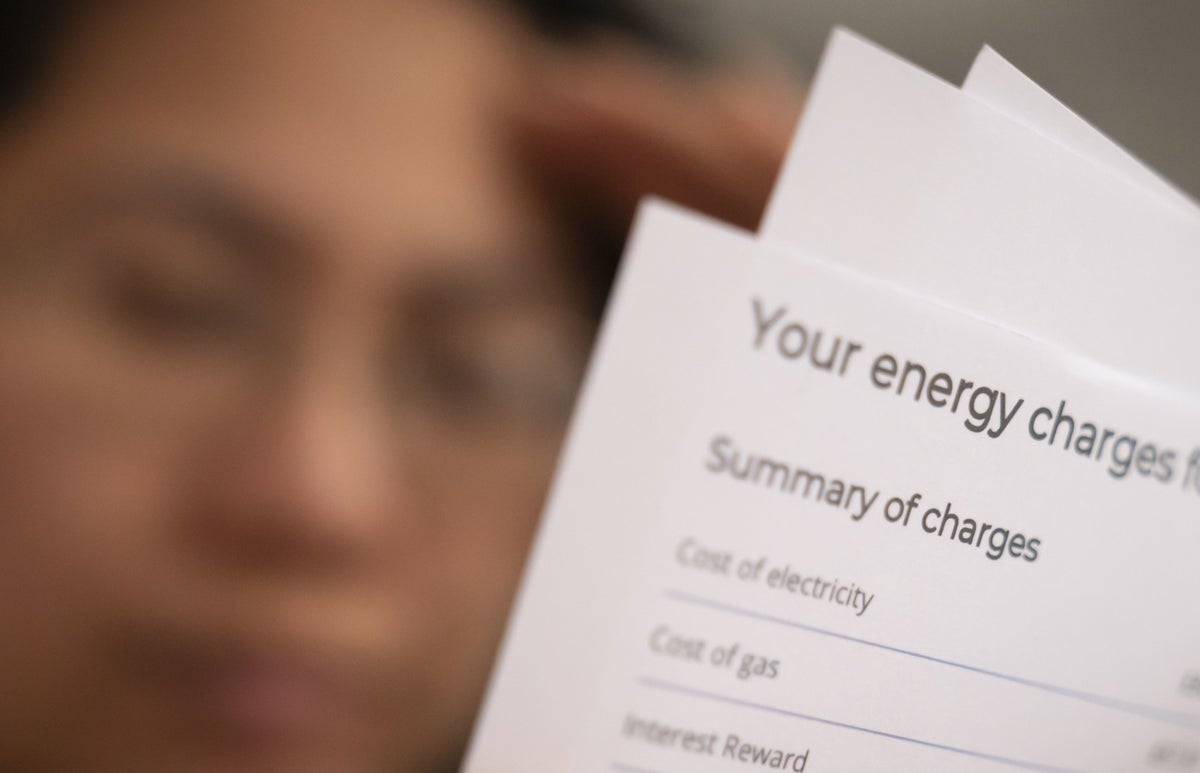
More than a fifth of people are worried about getting into energy debt this winter, Citizens Advice Scotland has warned.
The charity has found that 22% of people (360,000) are “worried or anxious” about arrears, and the average energy debt for individuals seeking complex debt advice across the network is £2,307, which is up by nearly £500 compared with the same time last year.
Energy debt can also have a big impact on mental wellbeing – however, there are places you can turn to for support. Here are some of the things you can do if you are feeling worried…
Speak to your energy supplier
Liz Hunter, a commercial director at Money Expert, says if you’re struggling to pay your energy bill, the first thing you should do is get in contact with your supplier.
“According to energy regulator Ofgem, ‘suppliers must work with you to agree on a payment plan you can afford’,” said Hunter.
“Under these rules, you can ask your supplier for a review of your payments, payment breaks or reductions, more time to pay, access to hardship funds, as well as general advice on how to use less energy.
In most cases, they’ll be able to create a more manageable payment plan for you.”
Experts say the first thing to do is to contact your supplier— (AFP via Getty Images)
Where should people go for advice with their bills?
“If you’ve done this and still feel that you need extra support or help, plenty of other organisations and charities can offer you free advice. Citizens Advice is a great first port of call. You can speak to one of its trained advisers,” added Hunter.
Other options, Hunter suggested, include contacting National Energy Action, Home Energy Scotland, the debt support charity Step Change, and Money Helper.
Is there financial support available?
Many people aren’t aware that energy suppliers, councils and the government offer various schemes and grants to help people with energy costs.
“But your eligibility for these may depend on your income, whether you receive certain benefits, how you pay for your energy and how energy-efficient your home is – but it’s worth checking out,” said Hunter.
“As there’s such a huge and varied amount of support available, it can be confusing to know what you’re eligible for and where to start. The best course of action is to get in touch with Citizens Advice, National Energy Action or (in Scotland) Home Energy Scotland, who should be able to check what you’re eligible for and advise you on how to go about applying.”
There is also the Fuel Direct Scheme. Hunter added: “If you’re receiving certain benefits, you might be able to gradually pay your energy bills in small amounts. These payments come directly out of your benefits. You can apply for this via your local Job Centre, but it isn’t the best option for everybody. Before you go ahead, call Citizens Advice to discuss the scheme, and what it’ll mean for you.
Financial support is available for those struggling— (PA)
“If you use a prepayment meter and can’t afford to top it up, you might be eligible for a fuel voucher. In most cases, you can access these by getting in touch with your local council,” said Hunter.
“And [depending on a range of factors], you may be eligible for Winter Fuel Payments, the Cold Weather Payment and the Warm Home Discount. In most cases, you should be receiving these automatically if you’re eligible, but it’s worth double-checking via the government website.
“If you’ve fallen into debt due to being behind on your energy bills, you might be eligible for a grant from your supplier. Examples include the British Gas Energy Support Fund, the ScottishPower Hardship Fund and the Ovo Customer Support Package. You should be able to apply for these via your supplier’s website.”
Take steps to minimise usage too
Of course, anything you can do to help keep your fuel bills manageable will also help. “If you’re able to turn your radiators on and off, it’s worth prioritising heat in the rooms you actually use and need,” said Hunter.
“If you’re unable to control them individually, you could invest in thermostatic radiator valves that can help control the temperature of individual radiators.
Keeping your home well insulation may also help. “DIY-fitting foam insulation could cost as little as £15 and the more you add, the more money you’ll save,” said Hunter.
“Many homes have gaps around doors and windows which can result in heat escaping. If you stop this, you could save up to £50 a year.
“You could also purchase draught excluders to place along any doors with gaps, along with sealant strips around draughty windows, to help keep heat in.”







